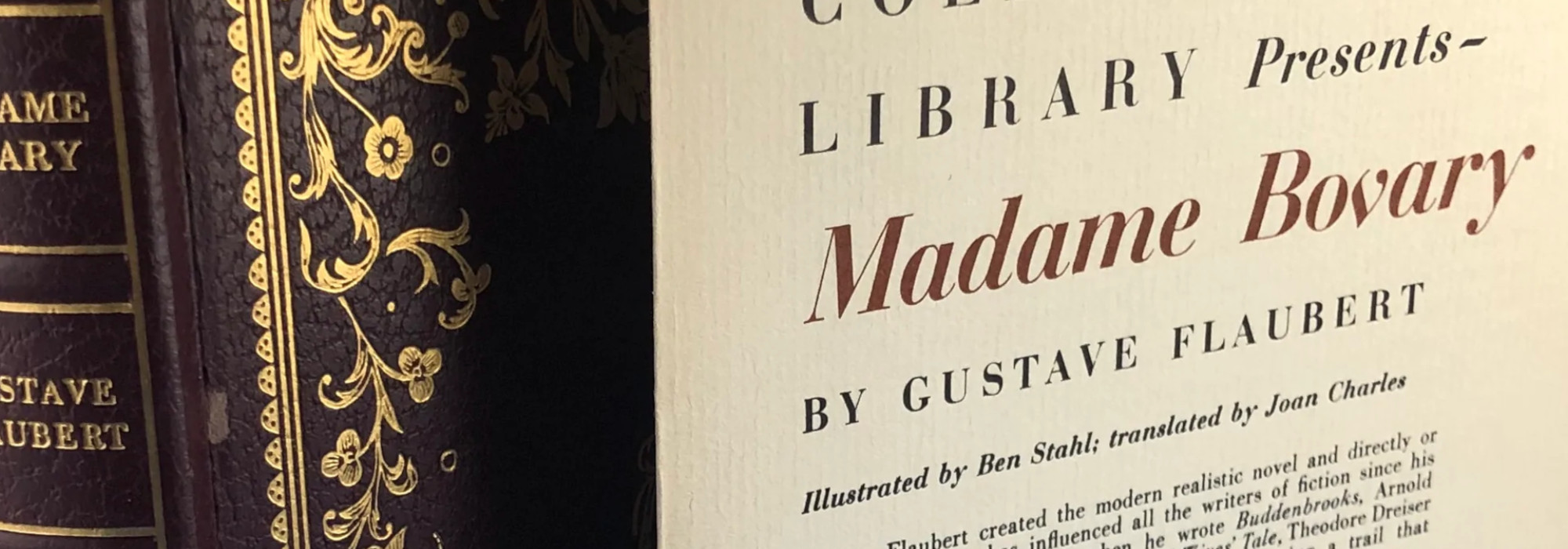Madame Bovary is a French novel by Gustave Flaubert, published in 1856, and adapted into several movies and tv series over the years, and there is a valid reason to why it is one of the most famous French novels in history. (I personally think the translated version by Lydia davis was the best out of the other editions, but back to topic.)
Starting with it’s main character—and following up with most of every other character—the descriptions of each were mocking higher middle classes in the social structure. The author’s phenomenal way of implying his judgements regarding social satire, and the realities of society at that time into his writing was done flawlessly. After reading this book, most of my judgements on the way societal structures has shaped each character’s disposition—or generally everyone—and their behaviors regarding others of different social structure, has changed tremendously.
This implication was written within most of all its main characters, though madame Bovary, or better known as Emma, was especially a typical depiction of her social division, and the author conveyed most of his hinted mockery onto her.
Emma was a spoiled, middle classed woman who was never satisfied with anything. When she was first introduced, Emma seemed like a typical, or even pleasant person, but as the story progresses, her greed and rapacity rises to the surface. Whatever her husband does something that unintentionally irritates her, or whenever someone does something that was disagreeable—even if none of it affected her in any way—she would undoubtedly argue with them or throw a fit just for the sake of being heard in a matter. Not only that, but she also lets her melancholic tragedies— invented in her own head—make her seek for sympathy and pity on her—as she would say—‘miserable life’ life, when in reality, she has a perfectly excellent life.
Though, apart from these satirical undertones on higher middle class, this book also has feminist undertones in which this book expresses.
Now, back in the 19th century, it is fairly rare to find feminist representations in literature, especially written by men at that time, but this book has quite a few deeply feminist undertones, and the most important of the portrayed feminism was linked with Emma.
Although many readers—I myself included—despises Emma for her ill temper and hotheadedness, the author still made use of this character to show the ignored patriarchy of their society, in which women have no control over their lives, and are overshadowed by men. Presumably, in this book, Emma’s husband, obliterates Emma’s name and reputation as ‘Monsieur Bovary’s wife’ and not just simply ‘Emma’. Therefore subjugating not only her name, but her standing within her district.
This loss of control over ones repute and ones life also reflects on her egotistical behavior, since she neither has a job or a purpose in life—unlike the lower class—nor control over her own life and complete financial secureness—unlike the higher class. Therefore it demonstrates the reasons behind Emma’s demeanor.
This book solely focuses on the higher middle class within the social structure, which only a few books touch on in the literary world, and it certainly reveals how patriarchy affects illy considered decisions and middle class women. This story brings an interesting perspective to the topic of how most of everything in your life back then, was related to your social structure, down to the very last bit—which in itself is rare and exceptional.
